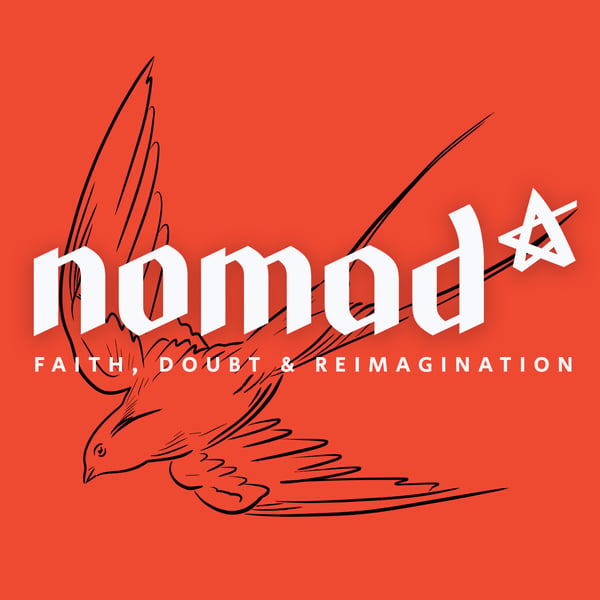Anthony Reddie & Ravelle-Sadé Fairman - White Supremacy and Black Suffering (N226)
Nomad Podcast
Tim Nash
4.7 • 658 Ratings
🗓️ 23 June 2020
⏱️ 61 minutes
🧾️ Download transcript
Summary
In this episode, black liberation theologian Prof Anthony Reddie and the poet Ravelle-Sadé Fairman reflect on black experience. These searching thoughts begin with the recent murder of George Floyd at the hands of US police officers, and from there reach into a knotted web of power and oppression: the disproportionate suffering of black people from Covid19, the enduring roots of European colonial rule, the dynamics of white fragility, the experience of black embodiment, the veneration of the statues of slave traders, and the emerging anti-racism movement.
Anthony Reddie is professor of Liberation Theology at Oxford University and the author of many books, including Is God Colour Blind? and Theologising Brexit. Ravelle-Sadé Fairman is a poet from Nottingham, UK, who performs as A Poetic Perception.
The creation of Nomad’s thoughtful, ad-free content is entirely funded by our equally thoughtful and wonderful listeners. By supporting us, you gain access to Nomad’s online spaces—like the Beloved Listener Lounge, Enneagram Lounge, and Book Club—as well as bonus episodes such as Nomad Contemplations, Therapeutic Reflections, and Nomad Revisited.
If you’d like to join our lovely community of supporters, head over to our Patreon page. You might even be rewarded with a Nomad pen or our coveted Beloved Listener mug!
If a monthly commitment isn’t possible right now, a one-off donation is always deeply appreciated—you can do that here.
Looking to connect with others nearby? Check out the Listener Map or join our Nomad Gathering Facebook group.
And if you're up for sharing your own story, we regularly post reflections from listeners on our blog—all with the hope of fostering deeper understanding, connection and supportive relationships. If you'd like to share your story on the blog, contact us for more information here.
Transcript
Click on a timestamp to play from that location
| 0:00.0 | The |
| 0:07.0 | The Gohoy! God's joy! |
| 0:22.6 | God's right! |
| 0:38.0 | My name is Professor Anthony Reddy. |
| 0:54.0 | I'm the director of the Oxford Centre for Religion and Culture |
| 0:58.2 | that's based within Regents Park College that is a part of Oxford University. |
| 1:04.4 | I'm also an extraordinary professor of theological ethics with the University of South Africa |
| 1:10.3 | and I'm the editor of the |
| 1:12.8 | International Journal of Black Theology. |
| 1:16.6 | I think first I would simply want to correct the language, because I think language is important |
| 1:21.9 | in how we understand and define things. I would not say killing, I would say the murder, |
| 1:27.0 | George Floyd. |
| 1:28.2 | Just simply because of killing sounds a slightly more neutral term where I think what we saw was |
| 1:34.1 | something that effectively was a murder. In some regards, I think this present moment is almost |
| 1:41.4 | like a perfect storm. And I say that because the truth is that |
| 1:46.6 | people have died, well African Americans have died at the hands of the police innumerable times. |
| 1:52.5 | And they have not given rise to this huge resurgence of activism and support and allyship from across all ethnic and cultural and |
| 2:04.9 | racial groups, both in America and across the world. I think in many respects, it's not just about |
| 2:10.9 | George Floyd. I think it's also linked to the whole phenomenon of the pandemic. And I think what we |
| 2:16.9 | had already seen from the pandemic is the way |
| 2:19.1 | in which that had revealed the structural injustice that had been faced by black people across |
| 2:26.5 | the world in terms of our disproportionate deaths really from that due to our great propensity |
... |
Please login to see the full transcript.
Disclaimer: The podcast and artwork embedded on this page are from Tim Nash, and are the property of its owner and not affiliated with or endorsed by Tapesearch.
Generated transcripts are the property of Tim Nash and are distributed freely under the Fair Use doctrine. Transcripts generated by Tapesearch are not guaranteed to be accurate.
Copyright © Tapesearch 2025.

